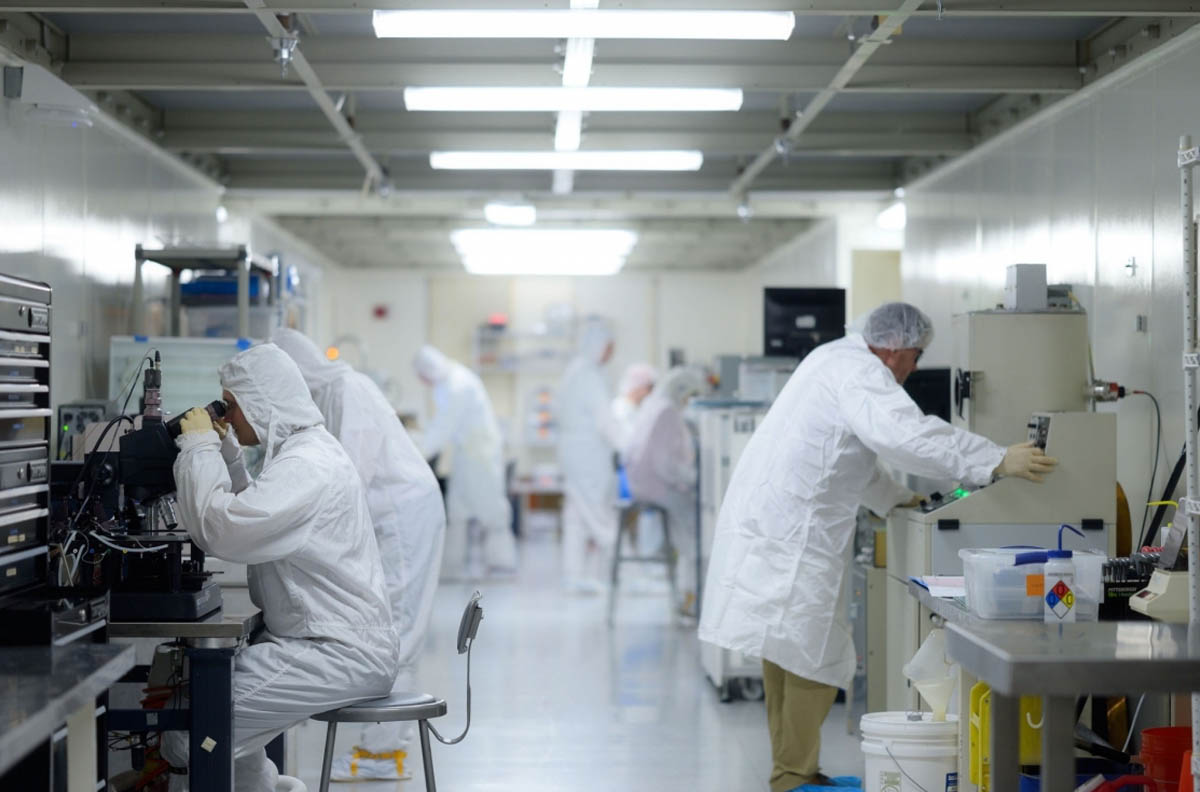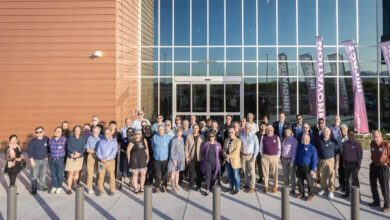
UArizona, Northern Arizona University to Boost State Semiconductor Industry
The agreement between the two universities formalizes a plan for the institutions and industry partners to collaborate on research projects and education partnerships related to semiconductor manufacturing.
University Communications
As Arizona looks to help boost the national semiconductor manufacturing industry, a new agreement between the University of Arizona and Northern Arizona University will help the universities work as collaboratively as possible.
The agreement is the latest step for the new UArizona Center for Semiconductor Manufacturing, which launched in May. Specifically, the agreement, called a memorandum of understanding, formalizes a plan for the universities and industry partners to find ways to collaborate on research projects and academic partnerships related to semiconductor manufacturing.
The agreement also encourages the universities to share research space and equipment and explore ways they can offer courses and professional development programs around the state to people working in the industry.
Liesl Folks is director of the UArizona Center for Semiconductor Manufacturing and the university’s vice president for semiconductor strategy.
A signing ceremony, held on the NAU campus in Flagstaff on Friday morning, included Folks; Andy Wang, dean of the NAU College of Engineering, Informatics, and Applied Sciences; and Ali Torabi, chairman of Lawrence Semiconductor Research Laboratory, Inc., a manufacturer based in Phoenix.
“We want to make sure we’re taking each of our distinct strengths and leveraging them across the whole of the state, and make sure we’re not reinventing curricula offerings unnecessarily,” said Folks, who is also professor of electrical and computer engineering in the UArizona College of Engineering. “We’re actively looking for efficiency and timeliness as we seek to have Arizona be as competitive as possible on the international playing field.”
The Arizona Commerce Authority in November awarded the College of Engineering $35.5 million to expand the college’s Micro/Nano Fabrication Center. The funding also is helping expand training opportunities in Arizona to meet the industry’s workforce needs.
Semiconductors, tiny computer chips used in all electronics, have become central to modern life. But the semiconductor manufacturing industry has only a few large and notable manufacturers and its workforce is not keeping pace with demand.
Governments around the world have rapidly rolled out incentive programs to boost semiconductor manufacturing. The Biden administration has made semiconductor workforce development a key federal initiative, namely through the CHIPS and Science Act.
“This memorandum of understanding demonstrates the need for collaboration across the state to advance the semiconductor industry – both in Arizona and across the U.S.,” Wang said. “Each university has strengths that it can and should build upon, such as research and development, facilities, equipment and scholarship, that we should each leverage strategically for the benefit of the entire state.”
Arizona already has a strong foothold in helping to address that demand: Several large manufacturers, including Intel and TSMC, have operations in the state, and more are on the way.
“People achieve the impossible when they come together and collaborate to solve society’s most urgent problems,” Torabi said. “It’s critical that these universities combine their strengths to deliver results that far exceed the impact of each institution working to address these issues alone.”
Pictured above – The University of Arizona's Micro/Nano Fabrication Center, in the College of Engineering, is one of several facilities central to the university's efforts to help grow manufacturing and research efforts involving semiconductors.





